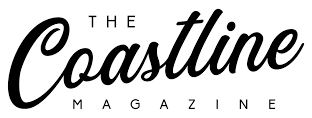In today’s fast-paced digital landscape, organizations rely heavily on software to drive their operations. But with this reliance comes the critical need for compliance and oversight. Enter the Doge Software Licenses Audit HUD—a game-changing tool designed to streamline software license management and ensure adherence to licensing agreements.
Navigating the complex world of software licenses can be daunting. Many companies find themselves unsure about what they own, what they’re using, and whether they’re in compliance with various regulations. This uncertainty not only poses risks but can also lead to unnecessary costs.
The Doge Software Licenses Audit HUD is here to change that narrative. It empowers organizations by providing a clear view of their software assets while simplifying the auditing process. As we dive deeper into how this innovative tool impacts businesses, you’ll see why it’s becoming an essential component in maintaining operational integrity and efficiency.
Understanding the purpose of a software license audit
A software license audit is a critical process for any organization that utilizes software. Its primary purpose is to ensure compliance with licensing agreements and to avoid legal repercussions.
By examining the installed software against purchased licenses, companies can identify discrepancies that may lead to fines or lawsuits. This proactive approach not only safeguards an organization’s assets but also promotes ethical usage of technology.
Additionally, audits help organizations optimize their software usage. They may discover unused licenses or underutilized applications, allowing them to allocate resources more effectively and reduce costs in the long run.
Understanding this purpose helps businesses maintain accountability while maximizing their technological investments. A thorough audit paves the way for smarter decision-making regarding future purchases and renewals.
The impact of a software license audit on an organization
A software license audit can significantly affect an organization’s operations and finances. It uncovers compliance gaps that could lead to legal repercussions if left unaddressed.
Companies often find themselves facing unexpected costs due to non-compliance penalties or the need to purchase additional licenses. This financial strain can disrupt budgeting plans and hinder growth initiatives.
Moreover, audits encourage organizations to evaluate their software usage critically. Many discover unused or underutilized licenses, leading to cost efficiencies through better resource allocation.
The process also fosters a culture of accountability within teams. Employees become more aware of licensing agreements and the importance of adhering to them.
This heightened awareness can improve overall IT governance, making it easier for management to implement best practices in software use across departments. The ripple effects of a well-executed audit extend far beyond mere compliance checks.
Benefits of using Doge Software Licenses Audit HUD
Doge Software Licenses Audit HUD offers organizations a streamlined way to manage software compliance. It simplifies the complex maze of licenses, making tracking and reporting more efficient.
With real-time insights, businesses can identify discrepancies and take action promptly. This proactive approach minimizes the risk of non-compliance penalties that can be costly.
The user-friendly interface enhances accessibility for teams across departments. Employees at all levels find it easy to navigate, ensuring everyone is on board with license management strategies.
Moreover, Doge provides detailed analytics that help in forecasting future licensing needs. This allows organizations to plan budgets better and optimize their software investments effectively.
By employing this tool, companies are not just safeguarding their assets; they’re also fostering a culture of accountability regarding software usage within their teams.
Case studies of organizations that have benefited from the audit
A mid-sized tech company recently implemented the Doge Software Licenses Audit HUD. Within weeks, they discovered over-licensed software costing them thousands annually. By optimizing their licenses, they redirected funds to innovation.
Another organization in the healthcare sector faced compliance challenges. The audit revealed unregistered software that posed risks during regulatory inspections. With Doge’s insights, they rectified these issues swiftly and improved their standing with regulators.
A non-profit organization found themselves overwhelmed by various software tools. The audit highlighted redundancies and unnecessary expenses in their toolkit. After streamlining operations based on the findings, they saved significant resources that could be allocated toward their core mission.
These real-world applications show how different sectors can leverage the Doge Software Licenses Audit HUD for strategic advantages while maintaining compliance and improving efficiency.
Common misconceptions about software license audits and debunking them with Doge Software Licenses Audit HUD
Many people think software license audits are only about catching companies off guard. This misconception can create unnecessary anxiety within organizations. In reality, these audits aim to ensure compliance and promote better software management.
Another common myth is that audits are time-consuming and disrupt workflows significantly. However, with tools like Doge Software Licenses Audit HUD, the process becomes streamlined and efficient. Organizations can quickly gather necessary data without causing major interruptions.
Some believe that engaging in an audit suggests wrongdoing or negligence. On the contrary, using Doge’s platform demonstrates a proactive approach to compliance and risk management. It shows commitment to legality and ethical practices.
There’s a notion that audits exclusively benefit software vendors. In fact, implementing Doge Software Licenses Audit HUD provides valuable insights for organizations themselves—helping them optimize costs and maximize their investments in software resources.
Conclusion: Why every organization should consider using Doge Software Licenses Audit HUD for
The importance of managing software licenses cannot be overstated. With increasing compliance pressures and the complexity of licensing agreements, organizations need a solid strategy to ensure they are on the right side of legal requirements. The Doge Software Licenses Audit HUD offers a streamlined solution that not only simplifies this process but also provides actionable insights.
By utilizing the Doge Software Licenses Audit HUD, organizations can proactively manage their software assets. This tool is designed to enhance visibility into license usage, helping prevent costly fines from non-compliance while optimizing software expenditure. Whether you are a small business or a large enterprise, effective use of this audit framework allows for better decision-making around software investments.
Furthermore, testimonials from companies that have successfully implemented the Doge Software Licenses Audit reveal its transformative impact on operational efficiency and cost-effectiveness. These case studies highlight how leveraging advanced technology leads to substantial savings and improved workflow management.
Misunderstandings about audits often lead to resistance within organizations. However, with tools like the Doge Software Licenses Audit breaking down barriers and misconceptions surrounding audits becomes easier than ever.
For any organization looking to navigate today’s complex IT landscape effectively, embracing solutions like the Doge Software Licenses Audit HUD could be key in fostering accountability and ensuring sustainable growth through robust license management strategies.

